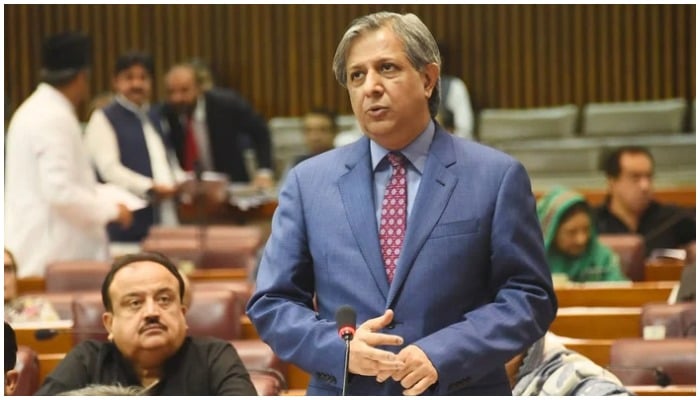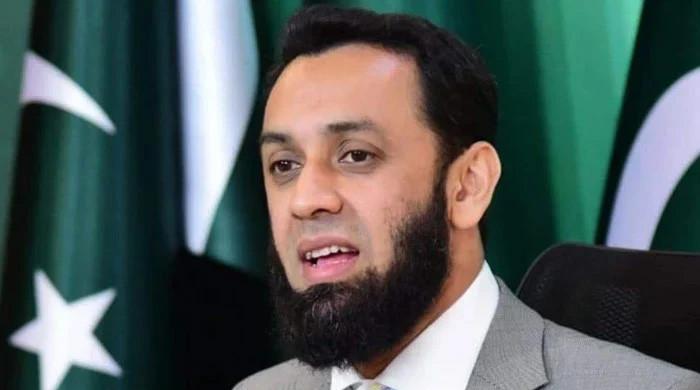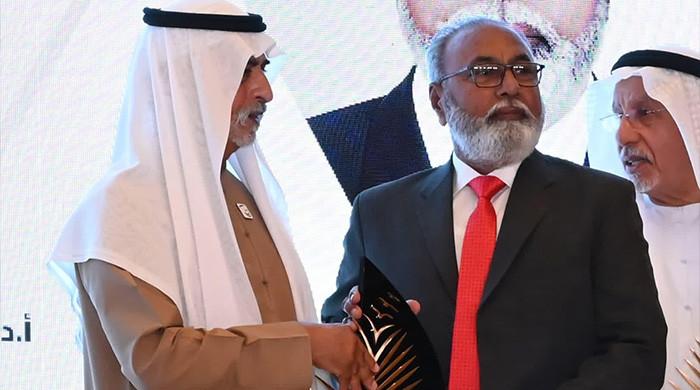NA passes bill abolishing use of EVMs in election
National Assembly also approves amendments in NAB ordinance, curtailing the body's powers
May 26, 2022

- Law minister says holding polls using EVMs in a single day "impossible".
- Dismisses impression that amendment is aimed at depriving overseas Pakistanis of their right to vote.
- Says govt does not believe in snatching overseas Pakistanis' right to vote.
ISLAMABAD: The National Assembly on Thursday passed a bill to abolish the former government's election reforms giving overseas Pakistanis the right to vote through i-Voting and electronic voting machines (EVMs).
The development came during the Parliament meeting convened by President Arif Alvi to deliberate on the current economic situation of the country.
The Election Amendment Bill 2022 — which was introduced by Parliamentary Affairs Minister Murtaza Javed Abbasi — was introduced in the National Assembly today.
The NA had bulldozed legislation for use of EVMs through the passage of a bill on November 17, 2021, giving overseas Pakistanis the right to vote in general elections through a voting device introduced by the PTI government.
Speaking at the NA session, Federal Minister of Law and Justice Azam Nazeer Tarar said that holding polls using EVMs in a single day is "impossible".
Tarar said the Election Commission of Pakistan (ECP) had also expressed its inability to hold the elections through i-voting and EVMs in such a short span of time, that too without proper homework.
He said two amendments are being brought to revive the Elections Act 2017, enabling the ECP to ensure free, fair, and transparent elections.
The minister dismissed the impression that the amendment was aimed at depriving overseas Pakistanis of their right to vote, adding that Pakistanis living abroad were a "precious asset of the country" and the government does not believe in snatching their right to vote.
Regarding the use of EVMs, the law minister said they are not against the use of technology, but they had concerns about misuse of technology as the Results Transmission System (RTS) had failed in the 2018 elections to favour a particular political party.
Meanwhile, a motion to suspend the rule of sending Election Act Amendment Bill 2022 to the Standing Committee was also passed.
Moreover, the house also approved the National Accountability (Second Amendment) Bill, 2021, formulating a post-retirement procedure for its chairman.
Following amendments were made to the ordinance:
- NAB’s deputy chairman will be the acting head of the watchdog when its chairman retires
- If the deputy chairman is absent then any senior officer will be given charge of the top post
- Tax-related matters have been excluded from NAB’s jurisdiction
- Provincial and federal cabinets' decisions for enjoying financial benefits will not be under NAB's ambit
- NAB will not probe irregularities in any development scheme or project
- NAB cannot take action over the decision of any regularity institution
- Judges’ appointments in accountability courts will be for a maximum three-year term
- Consultation with the concerned high court chief justice will be mandatory for the removal of an accountability court judge
- The consultation process for the appointment of a new NAB chairman will start two months prior to the incumbent's retirement
- The consultation process for the appointment of a new NAB chairman will be completed in 40 days
- If the prime minister and the opposition leader fail to agree on any name for the coveted post, the matter will be sent to the parliamentary committee
- The parliamentary committee is bound to finalise the name for the post of NAB chairman in 30 days
- After completing a three-year term, a person can not be re-appointed to the post of NAB chairman.











